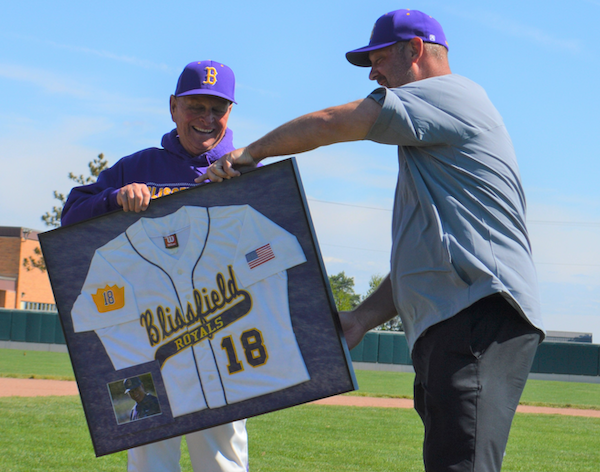
Thank Roosevelt for Football Weekends
December 20, 2013
By Rob Kaminski
MHSAA benchmarks editor
The next time you find yourself immersed in a tense crosstown football rivalry on a Friday night followed by a Saturday pilgrimage to the nearest college campus and a Sunday afternoon with a remote and your favorite snacks and beverages, take a moment to consider what the weekend would be like if it weren’t for Teddy Roosevelt.
The man who became our 26th President shortly after the turn of the 20th Century following the assassination of William McKinley in 1901 was a football fan like you. Maybe more so.
Today’s game of football has reached a critical crossroads. Player size and speed have increased across the board. Savage use of equipment as weapons rather than protective gear has been glorified on television networks and social media. Leaders of the game at all levels have recognized the need for change, employing new rules and widespread educational efforts to aid in preserving the sport.
History, as they say, is repeating itself.
In an ironic twist, it was Roosevelt who saved the then-brutally violent game of football from itself more than 100 years ago. Yes, the same “Rough and Ready Teddy” who led the charge up San Juan Hill during the Spanish-American War and often sparred in the boxing ring while in office from 1901-09 opined that football was becoming so gruesome that he delivered an ultimatum: clean up the game or it would be outlawed.
The Chicago Tribune reported that in 1904 alone, there were 18 football deaths and 159 serious injuries, mostly among prep school players. Football deaths suffered by younger players were reported on a nearly weekly basis, as outraged citizens called on colleges and high schools to banish football outright.
In stepped Roosevelt, who called head coaches and representatives from Harvard, Yale and Princeton – college powers at the time – to the White House in 1905 urging them to eliminate excessive violence and set an example of fair play for the rest of the country. When the casualties actually rose by one during the ensuing season, Roosevelt reacted with greater resolve and convened leading football authorities for the purpose of authoring drastic rules changes. What emerged was an intercollegiate conference which was the predecessor of the NCAA.
Among the most effective changes for the 1906 season were the legalization of the forward pass, the elimination of mass formations, and the creation of a neutral zone. Football fatalities fell to 11 in each of the next two seasons, and severe injuries fell drastically.
Thanks to the introduction of protective equipment and ever-evolving rules changes, football during the 100-plus years to follow has become an exponentially safer game. Yet, the game’s leaders always will need to adjust and react to scrutiny that comes with the territory.
So, as the game once again undergoes rules modifications in the name of safety, give a tip of the cap to President Roosevelt while you enjoy college bowl season and the NFL playoffs and begin to think ahead to the first high school practice of 2014.

Baseball Remains Front of Tuttle's Mind, Close to Retired Coach's Heart
By
Doug Donnelly
Special for MHSAA.com
June 29, 2023
BLISSFIELD – Larry Tuttle jogged out of Tuttle Dugout onto the artificial turf at Adrian College and took his spot in the third base coach’s box, looked in at the batter as he approached the plate and clapped his hands.
It’s like he never left.
For more than 50 years, Tuttle occupied the third base coach’s box for the Blissfield Royals. He is the winningest high school baseball coach in Michigan history and one of the winningest prep baseball coaches in America. It’s been two years since Tuttle last coached the Royals, but when the Lenawee County All-Star Game came around this year, and Onsted coach Matthew Randall was named a head coach of one of the teams, one of his first calls was to Tuttle.
“To see him coach third base again for two innings of that all-star game was nothing short of amazing,” Randall said. “I love that man and everything he has taught me.”
Tuttle and Randall faced off about 40 times over the years.
“There’s a lot of respect between us,” Tuttle said. “I was happy to do it.”
Tuttle, 79, is a Morenci native who played baseball and graduated from Adrian College, coached for one year at Temperance Bedford and five decades at Blissfield. He spends a little more than half of the year in Florida these days in a house he owns in The Villages, a retirement community about an hour north of Orlando.
This past spring, Blissfield took a spring baseball trip to Florida and Tuttle was able to come out to the field and watch a few practices.
“That’s the best time,” he said. “I always enjoyed those first practices of each season. People will ask me, ‘But what about the cold? It’s always so cold in Michigan that first week.’ The first 10 days or two weeks or so inside, that’s where we formed our whole season, working on the fundaments and the strategy, getting the kids mentally ready for the season. That was a fun part of coaching.”
He returns home to Michigan each summer to spend time with his kids and grandchildren, including a freshman-aged granddaughter who is showing good things in softball. His roots are in southeast Michigan, and he has every intention of keeping it that way.
 Tuttle’s career at Blissfield was nothing short of remarkable.
Tuttle’s career at Blissfield was nothing short of remarkable.
He coached Blissfield for 54 seasons. It would have been 55, but the 2020 season was canceled due to COVID. The Royals won 1,332 games during his career. They won 33 District titles, 23 Regional championships and seven Finals crowns. Blissfield also won 40 league titles, including in his final season of 2021. His No. 18 jersey was retired by the school district.
In 2015, Tuttle was an easy inaugural choice for the Michigan Baseball Hall of Fame.
This summer, Tuttle returned to Michigan in time to see Blissfield play a few regular-season games and was there when his beloved Royals played in the Division 3 District tournament. He wore his familiar Royals gear. When the Lenawee County All-Star game was played, Tuttle was in his full Blissfield uniform. It still fits perfectly.
“I still enjoy the game,” Tuttle said. “It’s my energy level that just isn’t what it used to be. That’s why I stepped down. I still love the strategy of the game.”
When he’s watching a game, he still goes through every play in his mind and what he would do if he was calling the shots.
“You’re always coaching even though you might a spectator,” he said. “It may not be the right way, but it’s my way. That’s baseball. I love thinking about what to do on this count or that count, to take a pitch or not.
“I see a lot of coaches these days who had played in college. Young coaches coach the college way, but you are dealing with high school kids who may not have a real firm understanding of the game itself. You have to teach high school baseball to college kids. You don’t teach college or pro ball to high school kids.”
Tuttle, who has battled some health issues the last couple of years, misses being in his role as coach.
“I miss the players and the relationships I had with umpires and the other coaches,” he said. “It’s hard to replace that.”
Tuttle is an icon in Lenawee County. When he goes to a game, people gather around him to talk. He still follows the area teams and has a relationship with several coaches and ex-players.
Tuttle enjoyed monumental success at Blissfield. The Royals’ last sub-.500 season was in 1971.
“I know that because I have the records,” Tuttle said. “The closest we came was we were 8-8 one year in the 1980s.”
Tuttle has been a stickler for stats his entire career. Some coaches have a hard time remembering how their team did two years ago. Tuttle knows. He kept intricate stats on every team he’s coached at Blissfield and to this day has them organized only a few steps away from his kitchen table at his home in Blissfield – which is just across the street from the high school and a long home run away from the baseball field that is named in his honor.
“I have a file cabinet full of files from each season and I have the scorebook from every year I coached at Blissfield, starting in 1968,” Tuttle said. “Stats were always important to me, not the wins, but the stats. Baseball stats tell you so much about the game.”
Since stepping aside, Tuttle has had time to reflect on his career.
“I would have never believed I would have coached that long,” Tuttle said. “Then, I sit back and think, ‘That was a lot of wins, wasn’t it?’ I don’t mean that in a bragging way. I think more about it when I go to a game.”
Randall recently announced his retirement from Onsted after 13 years as head coach. Onsted is in the same conference as Blissfield, the Lenawee County Athletic Association, so he had a close-up view of Tuttle in action.
He now has a memory of the last game he coached at the All-Star Game at Adrian College.
“I credit a lot of my coaching philosophy to this day to him,” Randall said. “Our relationship has really grown over the years. I wanted Coach Tuttle to be with me in my final game. That’s why I asked him.”
PHOTOS (Top) Retired Blissfield baseball coach Larry Tuttle coaches third base during the June 26 Lenawee County All-Star Game. (Middle) Tuttle’s jersey is retired during a 2021 ceremony. (Photos by Doug Donnelly.)

